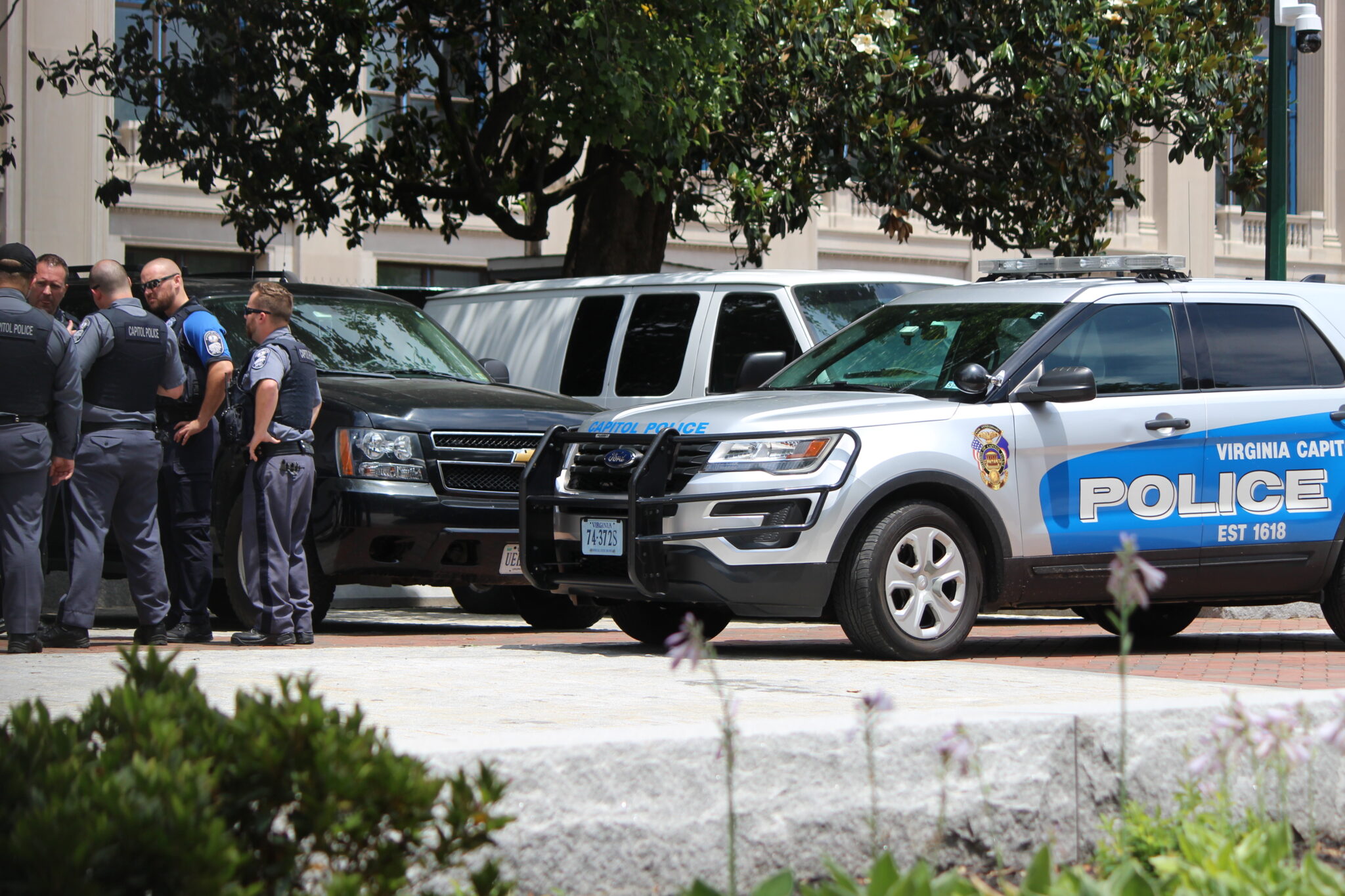RAHUL CHOWDHRY SHARMA
(VM) – From 1999 to Feb. 2021, just 81 law enforcement officers lost their ability to work in Virginia because of unacceptable conduct on the job.
Since then, numbers have surged. Between March 2021 and Aug. 5 of this year, 103 Virginia police officers have been decertified, largely as a result of a law passed in 2020 that expanded the criteria for an officer to lose their state certification.
Previously, officers could only be decertified if they were convicted of a crime, failed a drug test or did not comply with required training standards. But the 2020 law, which was passed as part of a series of police reform measures, broadened the criteria for decertification to include officers who are fired or resign as a result of certain misconduct, including use of excessive force or actions that compromise their credibility, integrity or honesty.
Two in every three decertifications that took place after the new criteria were instituted cite the credibility, integrity or honesty clause as at least one reason for decertification, with the majority specifying that document falsification or lying in an internal investigation had occurred.
The 2020 change was backed by the American Civil Liberties Union of Virginia, among others, which argued that decertification reform would prevent officers who had been fired by one department for a violation from being rehired by another department in the state. Previously, officers were also able to resign from the department to prevent a complete investigation of misconduct.
Of the 103 decertifications that have occurred since the law went into effect in March 2021, 28 are pending conclusion, with 11 currently going through an appeals process. Nine officers have had their certifications reinstated.
The law also gave the Department of Criminal Justice Services a 280-day deadline to develop standards of conduct for law enforcement officers. Once those standards go into effect, failure to adhere to them would be grounds for decertification.
To date, the agency has missed that deadline by over 240 days, leaving a process lawmakers intended to be wrapped up by December 2021 still unresolved.
DCJS cites the omicron wave of the COVID-19 pandemic as the main reason for the delay. Since the group was unable to meet in-person due to infection concerns, they could not reach a quorum to vote on proposed language for the standards of conduct.
In an emailed statement, Harvey Powers, DCJS director of law enforcement services, also said “group members did not yet feel ready to proceed to the final vote on proposed standards and designations of serious misconduct … before the end of the year.” He later clarified that “the members of the working group were taking very seriously the details of what they were working out” and said some of the delay was due to the group “being patient and meticulous.”
On June 1, six months past the December 2021 deadline, the working group convened by DCJS voted unanimously in favor of draft standards for law enforcement that had been developed over four meetings in 2021. The Criminal Justice Services Board also unanimously approved the draft language June 16, followed by the Office of the Attorney General on Aug. 2.
The Department of Planning and Budget now has 14 days to review the draft regulation, after which the Secretary of Public Safety and Homeland Security will have two weeks to review it. It will then go to Gov. Glenn Youngkin for a final review and approval.
The working group consists of 27 members, a majority of whom are required by the 2020 legislation to be “crime victims, people directly impacted by the criminal justice system, people representative of communities disproportionately represented among persons incarcerated in Virginia jails and prisons, civil rights advocates, mental health advocates, defense counsel, and people employed in the criminal justice system.”
Given the diverse interests involved, DCJS Policy Adviser Maria Garnett said that “for us to have gotten to a work product that has gotten unanimous support is a pretty big deal.”
The draft language under review was published by DCJS Aug. 5.
The draft standards spell out what constitutes serious misconduct, which includes “untrue, or fraudulent representations in the practice of being or becoming a law-enforcement or jail officer,” “abusing the power inherent” in law enforcement, “engaging in discriminatory policing,” not complying with the decertification process, engaging or failing to intervene in the use of excessive force, and any “pattern of acts showing an intentional or reckless disregard for the rights, safety, or well-being of others.” They also outline due process procedures for decertification.
Claire Guthrie Gastañaga, former executive director of the ACLU of Virginia, said that even with the adoption of statewide standards, “a lot still depends on … whether the local police departments are going to be assertive in applying the standards.”
“I don’t have a lot of confidence about what’s going to happen at the local level,” Gastañaga said. “They’ve always resisted external oversight.”
Dana Schrad, executive director of the Virginia Association of Chiefs of Police, said that she “has not heard of any reluctance among police departments to notify DCJS of conduct that is considered a basis for decertification” but emphasized that her organization wants to ensure the decertification and appeals process is “fair and consistent.”
Va. police conduct standards will soon be enforceable – two years after law passed



